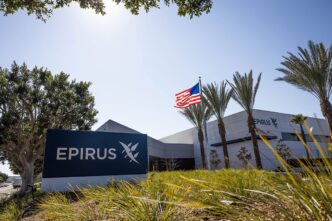The global textile industry faces an urgent problem: it produces over 60 million tonnes of synthetic fibres annually. These fibres rely heavily on oil, fueling greenhouse gas emissions and microplastic pollution. London-based biotech startup Solena Materials is tackling this head-on.
Backed by cutting-edge AI and synthetic biology, Solena is developing biodegradable, protein-based fibres to replace polluting synthetics. The company has just raised $6.7 million in seed funding to scale its innovative platform. The round was led by physicist-turned-investor Sir David Harding, with support from SynBioVen and existing investor Insempra.
Biotech Meets AI to Create Sustainable, High-Performance Fibres
Solena was founded in 2022 by Dr. James MacDonald, Professor Paul Freemont, and Professor Milo Shaffer — all researchers at Imperial College London. Dr. MacDonald, now CEO, developed the company’s core technology during his fellowship at Imperial. Together, they combine expertise in synthetic biology, material science, and bioengineering.
Using engineered microbes, Solena designs custom protein sequences that don’t exist in nature. These microbes produce fibres tailored for durability, elasticity, and softness, perfect for fashion, sportswear, and technical textiles. Unlike cotton or polyester, these fibres are fully biodegradable and produced using renewable feedstocks.
What sets Solena apart is its deep learning platform. This AI-driven system generates and tests new protein designs optimized for industrial scale and specific mechanical properties. Instead of relying on nature, Solena builds fibres from scratch — a breakthrough in material science.
Professor Freemont explained: “James has created protein molecules that form fibres nature never provided. This opens an entirely new design space. It’s a paradigm shift.”
With this funding, Solena will move to a new space within Imperial’s White City Deep Tech Campus, complete with pilot-scale fibre spinning lines and automated bioreactors. The move will support manufacturing and partnerships with fashion brands planning to use Solena fibres in 2026 collections.
From Lab to Runway: Scaling Production Without Compromising Performance
Unlike many green startups, Solena isn’t sacrificing performance for sustainability. The team’s strategy is to target high-performance sectors first, such as moisture-wicking sports apparel and durable medical textiles. These markets allow for premium pricing, helping the company scale before entering mass-market fashion.
By delivering performance and sustainability, Solena helps early adopters differentiate. As global regulations tighten—like the EU’s planned restrictions on microplastic emissions—brands using Solena’s fibres gain a compliance edge. According to estimates, 500,000 tonnes of textile emissions could be regulated annually by 2030.
Professor Shaffer, Solena co-founder and Chair in Materials Chemistry at Imperial, noted: “Solena is more than just a new fibre. It’s a leap in how we discover and scale materials. Our AI system lets us design, evaluate, and scale fibres faster than ever.”
Solena’s production model avoids the common “green premium” trap. By creating fibres that perform better—and not just “greener”—the company positions itself as a tech-first innovator rather than a niche eco-brand.
The team is now hiring for roles in strain development and lab operations as it shifts from R&D to commercial production.
As investors look for real, scalable climate solutions, Solena stands out. It offers a way to transform one of the world’s most polluting industries through science, sustainability, and smart design.













